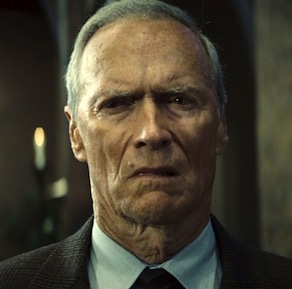
 A fitting follow-up to our recent post about how memory relates to self-justification from NPR, “For the Dying, A Chance to Rewrite Life.” The segment looks at a new therapeutic technique being used with the dying, something called “dignity therapy,” which involves those in the last stages of life putting together formal written narratives of their lives. As you might imagine, the results have a sacramental aspect, combining confession, apology, self-justification, delusion and willful if heartfelt revision. What’s perhaps most interesting is the conclusion of the piece; dignity therapy may superficially appeal to our denial of death – i.e. the desire to leave an undying “legacy” – but its real value is deeper, namely, it exposes a universal human need to be forgiven or exonerated before death. “Coming to terms” with your life, with yourself, may not actually be optional – it has and will outlive (!) religious conventions or fashions. Some may do this by (tragically) clinging to overt self-justifications, but others, it would appear, change their tune. In this sense, you might say that dignity therapy helps those who for whatever reason can’t articulate their guilt find a way to voice their dying prayers. Which is a ministry if I’ve ever heard of one, ht TS:
A fitting follow-up to our recent post about how memory relates to self-justification from NPR, “For the Dying, A Chance to Rewrite Life.” The segment looks at a new therapeutic technique being used with the dying, something called “dignity therapy,” which involves those in the last stages of life putting together formal written narratives of their lives. As you might imagine, the results have a sacramental aspect, combining confession, apology, self-justification, delusion and willful if heartfelt revision. What’s perhaps most interesting is the conclusion of the piece; dignity therapy may superficially appeal to our denial of death – i.e. the desire to leave an undying “legacy” – but its real value is deeper, namely, it exposes a universal human need to be forgiven or exonerated before death. “Coming to terms” with your life, with yourself, may not actually be optional – it has and will outlive (!) religious conventions or fashions. Some may do this by (tragically) clinging to overt self-justifications, but others, it would appear, change their tune. In this sense, you might say that dignity therapy helps those who for whatever reason can’t articulate their guilt find a way to voice their dying prayers. Which is a ministry if I’ve ever heard of one, ht TS:
“One of the last times that I went into [one of my patient’s] room to meet with him, on his bedside table was a photograph of him when he had indeed been young and healthy and a bodybuilder, and it was this incredible juxtaposition of these two images,” says [pioneering dignity therapist Harvey] Chochinov.
So in the bed there’s his patient — this skeleton of a man — very pale and weak. On the bedside table, there’s this portrait of a glistening, muscled giant. And Chochinov says that sitting there, it was very clear to him that by placing this photograph in such a prominent position, the man was sending a message: This was how he needed to be seen.
As Chochinov continued his work with the dying, he confronted this again and again — this need people have to assert themselves in the face of death. And he started to wonder about it. “Why is it that how people perceive themselves to be seen should have such a profound influence? How does that make sense? What does that mean?” Chochinov says.
Chochinov decided to create was a formal written narrative of the patient’s life — a document that could be passed on to whomever they chose. The patients would be asked a series of questions about their life history, and the parts they remember most or think are most important. Their answers would be transcribed and presented to them for editing until, after going back and forth with the therapist, a polished document resulted that could be passed on to the people that they loved.
Chochinov named this process dignity therapy, and for the past 10 years he has used it with the dying. And one of the things that has struck him about the process is this: The stories we tell about ourselves at the end of our lives are often very different than the stories that we tell about ourselves at other points.
“When you are standing at death’s door and you have a chance to say something to someone, I absolutely think that that proximity to death is going to influence the words that come out of your mouth,” Chochinov says.
Some people at that point choose to reinterpret lives, while other choose to frame their life as a warning… Chochinov says people who are troubled sometimes use the narratives to formally ask their families for forgiveness.
Though there’s no evidence that it relieves depression or anxiety, [Dr. William Breitbart of The Sloan-Kettering Cancer Center in NYC] thinks it can help us change in the very last moment of our lives. After all, he says, we’ve all lived imperfect lives.
“All of us fail, and the process, the task of dying, is to relieve ourselves of this guilt, whether it’s forgiving yourself or asking others to forgive you,” says Breitbart. “Or to remember your life slightly differently. But that’s the task of dying.”
[youtube=http://www.youtube.com/watch?v=B1pNEhVcumU&w=600]

COMMENTS
Leave a Reply














